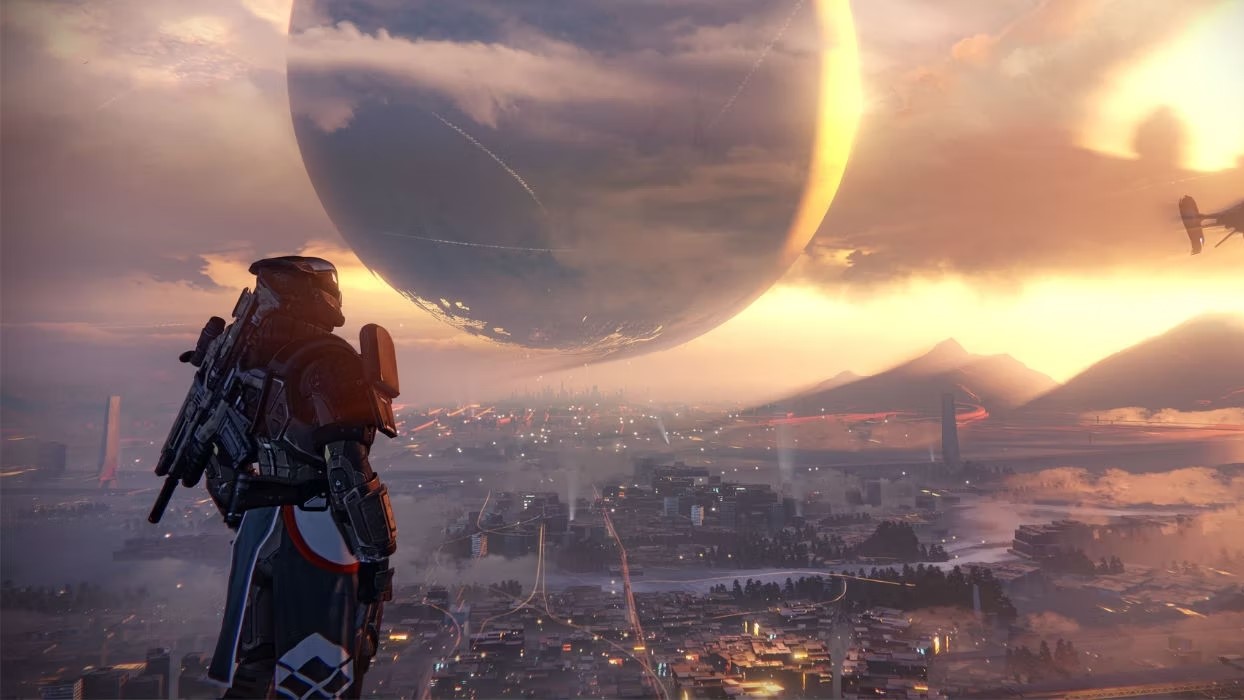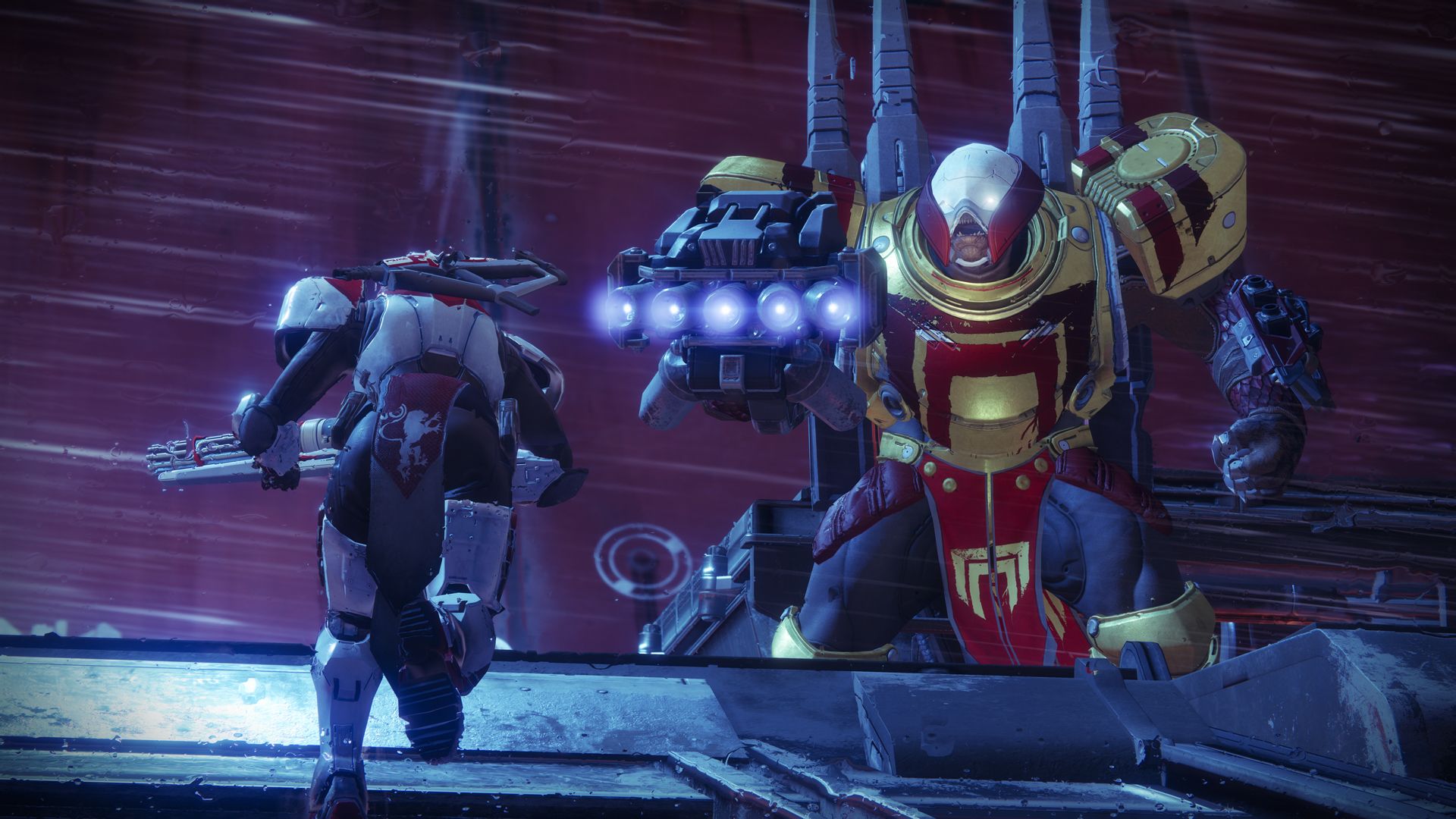Lately, Destiny 2 developer Bungie has been in the news because of the recently concluded alpha playtest of its upcoming 2025 extraction shooter Marathon and the flood of various community opinions about and issues with the title. Recently, though, it also came under the spotlight for a very different reason.
On Friday, a federal judge rejected a motion from Bungie to dismiss an ongoing Destiny 2 lawsuit in which the plaintiff — Matthew Kelsey Martineau, a writer also known by his pseudonym Caspar Cole — alleges that the studio plagiarized several major concepts from his unpublished sci-fi story that was viewable on his WordPress blog during the creation of Destiny 2’s Red War campaign and its Curse of Osiris expansion. The case was filed in October last year, and Bungie’s request for a dismissal came just a few months later. Five months after that, it’s now been denied.
You can read Judge Susie Morgan’s 16-page ruling in its entirety here, but the long and short of it is that Bungie’s proposal was refused because the developer no longer has playable builds of the Red War and Curse of Osiris releases. These were removed from Destiny 2 years ago as part of Bungie’s “Destiny Content Vault” initiative, which sees the company periodically remove and “vault” pieces of legacy content as the eight-year-old game grows in size and technical complexity.
Bungie opted to submit YouTube playthroughs and community-maintained Destinypedia wiki pages as evidence instead, but third-party materials like these have been deemed insufficient for its case.
Despite the argument from Bungie that these YouTube videos and wiki pages “are true and accurate representations of Destiny 2 gameplay and information,” the judge ultimately ruled that they’re not sufficient for the type of side-by-side comparison that needs to be conducted here, and also that their third-party nature makes them unacceptable as evidence.
“The Court will not consider the exhibits attached to Defendant’s motion to dismiss and will not convert the Defendant’s motion to dismiss to a motion for summary judgment,” reads judge Morgan’s decision. “There has not been sufficient time for discovery, and the attachments are admittedly of third-party origination. Their authenticity has not been established.”
Though one might assume Bungie could add Red War and Curse of Osiris back to a private build of Destiny 2 in order to effectively dispute Martineau’s case, the developer has actually admitted this isn’t possible due to the old content not being compatible with the game as it is now. “As Defendant admits in its reply, ‘[t]here is now no feasible way for [Defendant] to provide the Court with a reviewable form of the [Red War or Osiris] campaigns or to produce them should this matter proceed to discovery,'” reads part of the latest ruling.
As a result of all of this — along with the complexities of this lawsuit, given that concepts from a game are being compared to those of a written work — Martineau’s case can now move forward, as the court found that “plaintiff has sufficiently alleged the elements of an action for copyright infringement.”
Bungie faces a unique problem in this Destiny 2 case
When I first caught wind of this lawsuit last year, I didn’t expect things to go very far; in my view, while there is perhaps some merit to Martineau’s claims about Destiny 2’s Red Legion faction specifically — in the new document, there’s a detailed overview of numerous alleged ways the Red Legion group in his work is strikingly similar to the Destiny enemy — most of the other things he points to are far more vague and disputable.
One example of this is a comparison between Destiny’s floating Traveler entity that gives Guardian player characters their powers and the Tononob Station in Earth’s orbit in Martineau’s story; both are “a massive celestial entity hovering above Earth,” but such entities are hardly a rarity in science fiction stories.
As a result, I thought this case would be thrown out rather quickly, but it looks like it’s about to become an even bigger issue for Bungie now that it’s actually moving forward — and comically, the biggest reason why it is is because of Bungie’s own decision to remove older forms of Destiny 2 content. Whether or not the Destiny Content Vault was a good decision for the health of the game or not is something that will be debated until the end of time, but one thing that’s undeniable is that it’s created a very unique problem for the developer in this lawsuit.
I still believe that Bungie will ultimately walk away from this case with a victory, but the fact Martineau actually seems to have a decent chance at winning this lawsuit is certainly quite the plot thickener. It will be interesting to see where things go from here, to say the least.






